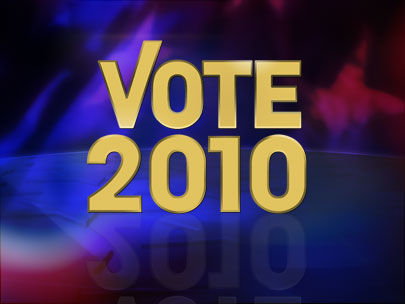Third party and Independent candidates poised for a political breakthrough as pragmatism argument works to their advantage

When Americans cast their ballots at the polls next week, it is safe to assume that many will be voting for candidates whom they consider to be the "lesser of two evils." However, in a number of high-profile races for governor and US Senate, the lesser evil probably isn’t who you think it is.
When partisans of the Democratic and Republicans parties seek to dissuade others from voting for third party and Independent candidates for office, they often have recourse to a number of stock arguments. Among the latter is the spoiler argument, which states that it is counterproductive to vote for third party or Independent candidates because it will result in the election of the major party candidate you dislike more.
We are told, for example, that those who voted for Ralph Nader in the 2000 presidential election spoiled Al Gore’s chances of success, thus resulting in the election of George W. Bush. Similarly, it is argued that those who voted for Ross Perot in the presidential election of 1992, helped defeat George H.W. Bush by splitting the conservative vote, thus handing the election to Bill Clinton. On the basis of such evidence, die-hard Democrats and Republicans argue that we must be pragmatic and defensively cast our ballots to ensure the defeat of the candidates from the other major party. We must vote for the “lesser of two evils” between the Democrats and Republicans, they say, to prevent the election of the greater evil among the two.
In a number of high profile contests for governor and US Senate, however, this very logic dictates support for third party and Independent candidates for office. In Maine’s gubernatorial race, Republican Paul LePage has maintained a consistent lead over his Democratic challenger Libby Mitchell. In recent weeks, support for Mitchell has steadily eroded while the poll numbers for Independent Eliot Cutler have doubled, putting him in a statistical tie with the Democrat. At the same time, Cutler has received a virtual avalanche of endorsements from newspapers across the state. A recent editorial in the Bangor Daily News opens with these lines:
“Maine has a rare opportunity to remake its government. State finances demand it. The public, increasingly aware that big changes are needed for the state to prosper, wants it. Only one candidate for governor — Eliot Cutler — has the skills, vision and detailed plans to lead this work.”
Given the unlikelihood of Mitchell’s victory in this race, coupled with Cutler's momentum, the pragmatic logic of lesser evilism suggests Democrats should break toward the Independent.
Something similar might be said of the race for US Senate in Florida. In this contest, Democrat Kendrick Meek finds himself in a distant third place, trailing Republican front-runner Marco Rubio and Independent Charlie Crist. Since declaring his independence from the Republican party, Crist has made significant efforts to garner the support of traditional Democratic party constituencies, and even led the race for much of the summer. If Meek’s waning Democratic base opts at the last minute to throw its support behind Crist in order to avert the election of Rubio, the gambit may well pay off. As Darcy Richardson writes at Uncovered Politics, Crist still has a fighting chance and “Floridians might be on the verge of witnessing one of the most exciting political comebacks in recent history.”
On the other side of the duopoly divide, we may witness Republicans aid in the defeat of Democrats by backing Independent and third party gubernatorial candidates. In Rhode Island’s race for governor, Republican-turned-Independent Lincoln Chafee has battled Democrat Frank Caprio for the lead in the polls, while Republican John Robitaille has demonstrated some difficulty even catching up with the front-runners. Republicans, whose primary interest is in defeating the Democratic candidate, may well end up casting their ballots for Chafee, but Chafee’s primary interest must be shoring up support among Independents and Democrats, who respectively account for 48% and 41% of the state’s registered voters. Significantly, in the last week, President Obama opted not to make an endorsement in the race, which was widely viewed as a severe snub of the Democratic candidate, while Chafee has touted past support from Obama.
Finally, in Colorado, former Republican Tom Tancredo’s late entrance into the gubernatorial race under the banner of the Constitution Party has stunned many observers and resulted in the absolute collapse of support for Republican candidate Dan Maes. Democrat John Hickenlooper maintains a small lead in the contest, but Tancredo’s meteoric rise in the polls must have many Democrats shaking in their boots. Indeed, Tancredo even turned the tables on his Republican rival, successfully labeling him with the dreaded term “spoiler.” In a recent message to supporters, Tancredo roars, “We can win this race! We just have to get our vote out –and that is what we are doing now!” If the remaining supporters of Dan Maes are willing to place the principle of pragmatism over their allegiance to party, they could easily tip the scales in favor of the conservative third party candidate, dealing a stinging defeat to Colorado’s Democrats.
While the argument in favor of the so-called “lesser evil” is most often put forward as a defense against the third party and Independent vote, in these races, the traditional logic of political pragmatism has effectively been turned on its head. Next week, voters will have the final say in the matter.




